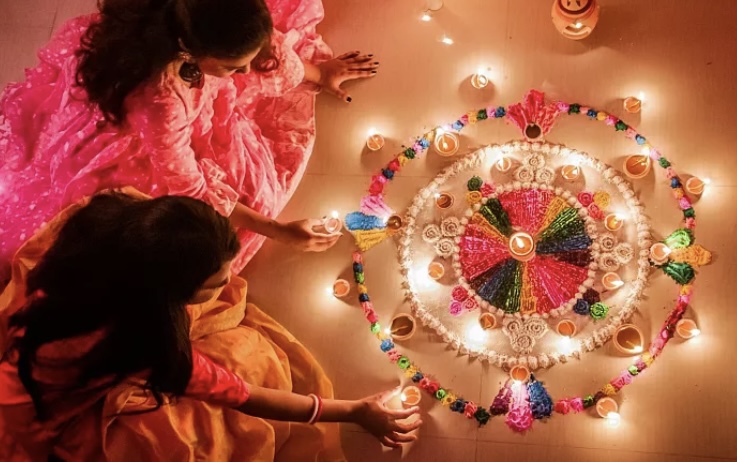
Diwali: The Festival of Lights
Diwali, also known as Deepavali, is one of the most significant festivals in India and among the Indian diaspora around the world. This festival of lights, celebrated with great enthusiasm, holds deep cultural and spiritual significance. Diwali typically lasts for five days, and each day is marked by various rituals, celebrations, and symbolic gestures. Here, we’ll delve into the essence of Diwali and explore the significance of each day.
The Triumph of Light Over Darkness
At its core, Diwali symbolizes the triumph of light over darkness and good over evil. The festival’s origin lies in various mythological stories, but one of the most well-known is the return of Lord Rama after defeating the demon king Ravana. The lighting of countless diyas (oil lamps) and bursting of fireworks on Diwali night is a collective effort to illuminate every corner of our lives, dispelling darkness and negativity.
The Five Days of Diwali
Diwali celebrations span five days, each with its own special significance. It starts with Dhanteras, a day dedicated to wealth and prosperity, where people buy gold or utensils. The second day, Naraka Chaturdashi or Choti Diwali, commemorates the victory of Lord Krishna over the demon Narakasura. The main day of Diwali is celebrated with great pomp, where families come together, exchange gifts, share delicious meals, and offer prayers to Goddess Lakshmi for wealth and prosperity. The fourth day, Govardhan Puja, is celebrated to honor Lord Krishna’s lifting of the Govardhan Hill to protect the people from torrential rain. The festival concludes with Bhai Dooj, a day dedicated to celebrating the bond between brothers and sisters.
Celebration and Traditions
Diwali is not just a festival but a time for families and communities to come together. The preparation for Diwali begins weeks in advance, with people cleaning and decorating their homes, buying new clothes, and preparing special dishes. The lighting of diyas, bursting of fireworks, and creating intricate rangoli designs are common traditions during Diwali. Temples are beautifully adorned, and people visit to offer prayers and seek blessings. It’s also a time for charity, where people give to those in need, further emphasizing the spirit of giving and sharing.
In conclusion, Diwali is a festival that radiates positivity, joy, and unity. It transcends cultural and geographical boundaries, uniting people in the celebration of light, hope, and the triumph of good over evil. As we light our diyas and exchange sweets and good wishes, Diwali serves as a reminder to cherish the light within us, spread happiness, and celebrate the goodness that exists in our lives. Happy Diwali!




